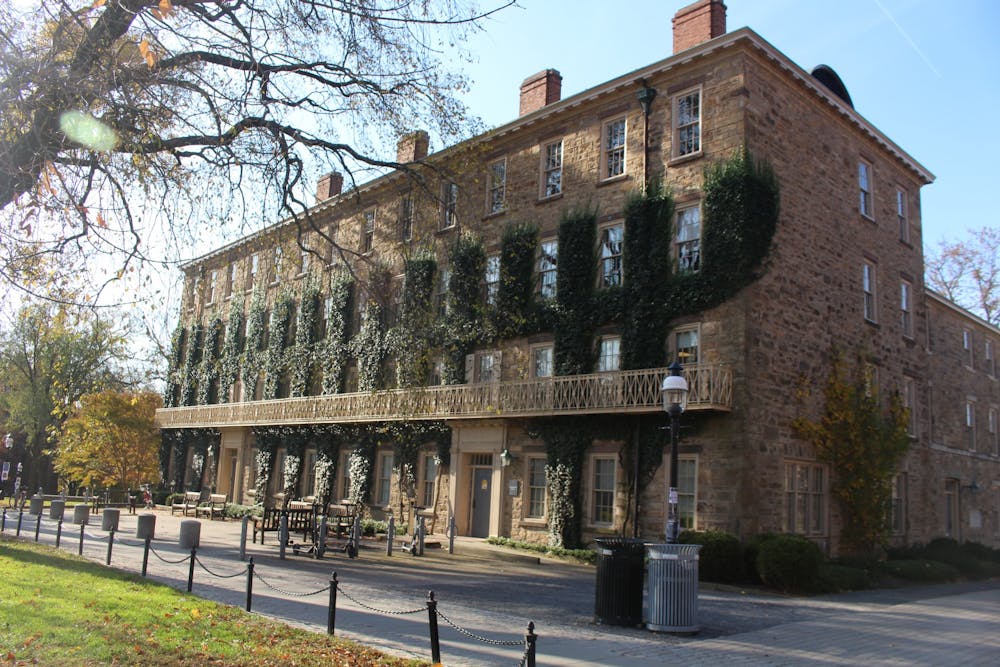The following is a guest contribution and reflects the author’s views alone. For information on how to submit an article to the Opinion Section, click here.
When affirmative action is overturned, can we really – morally, willfully – accept that Princeton will throw up its hands up in defeat? Can we let ourselves turn back the clock of history without being completely repulsed at ourselves? No, of course, we can’t. Princeton must seek urgent legal recourse to forge a resistance. I believe this comes in the form of an anticipatory suit seeking declaratory relief for our admissions practices, in simpler words, asking the court to clarify the bounds of the ruling to prevent it from being stretched through lawsuits.
Affirmative action in higher education will likely be overturned sometime in the next few months. The combined forces of Students for Fair Admissions (SFFA) v. President and Fellows of Harvard College, SFFA v. University of North Carolina, and, by one measure, the most conservative Supreme Court bench in nearly a century have made this outcome almost certain. If overturned, universities will no longer be allowed to consider race as a factor in admissions.
At a recent Princeton Progressive Law Society (PPLS) event, Mexican American Legal Defense and Educational Fund (MALDEF) president and civil rights lawyer Thomas Saenz explained that the moment the Supreme Court issues its ruling to overturn affirmative action, a vast, sophisticated, dedicated, and well-moneyed legal effort will be undertaken by conservative advocacy groups to expand the reading of the holding in dramatic fashion.
This expected effort would not even represent a faithful enforcement of a Supreme Court decision. It may attempt to pervert of the ruling to stage an attack on all instances of racial “classification” on the flawed grounds that they are exclusionary to white and Asian students, or “reverse racist” (though this term seems to have fallen out of favor).
Litigators may accuse Princeton of using race as a factor in admissions if Princeton does not immediately and vigorously reduce the number of Black and Brown students on its campus — brilliant, deserving, qualified students. If it does not un-diversify, in other words, it must be breaking the law. Once again, no imaginable version of the Supreme Court ruling will hold this — there are a variety of race-neutral admissions practices that help to assure a diverse class, as University President Christopher L. Eisgruber ’83 has enumerated in the past— but to university offices of general counsel across the country, the threat of lawsuits will terrifying nonetheless.
Princeton, like other universities, is stuck wondering what will happen to it. Many universities may be fearful that — under such intense political scrutiny of their admissions regimes — the consequences will be swift and severe if universities don’t reduce the diversity of the student body. This would represent universities giving up: such a listless resignation is not acceptable — not with so much on the line.
I strongly urge the University administration and the Office of the General Counsel to seek declaratory relief for its admissions practices both before and after the holding (the former being the more timely concern). By asking a court to clarify the legality of the current admissions practices, a declaratory judgment resolves legal uncertainty for a plaintiff or parties to a contract, especially when the law is new, ambiguous, and untested — or in this case, forthcoming.

The practice of seeking out a judicial declaratory go-ahead for one’s activities is routine. Universities seek declaratory judgments all the time, especially in cases involving paying or firing tenured faculty. I believe that by not seeking such relief for race-neutral admissions practices before the Court issues its ruling, Princeton is dangerously exposed to bad-faith litigation which overextends the ruling (this would be unusual, true, but these are unusual times).
In a recent Q&A with the 'Prince,' University President Eisgruber promised to do “our best to be creative within the limits of the law,” a laudable commitment to protecting the diversity that is critical to our university’s mission. With our abundance of bright minds and resources, what if Princeton sought to resist the law, even if other universities can’t or won’t?
It’s discouraging that the University has offered no explicit guidance as to how it will proceed post-SFFA. I worry that we will (with only some hesitation) let ourselves emulate the devastating effects of California’s 1996 prohibition on affirmative action in its public higher education system. No, Princeton isn’t expected to single-handedly resurrect affirmative action. Declaratory relief won’t achieve that, anyway. But it could light the path for other, similarly at-risk institutions. At a minimum, Princeton cannot allow conservative elements to rob us of members of our college community without the maximum resistance. We can buy ourselves more time.
Guest Contributor Luke Carroll is the founder of the Princeton Progressive Law Society (PPLS). He is a member of the Class of 2026 from Massachusetts. Reach him at lukecarroll@princeton.edu.

Editor’s Note: The ‘Prince’ could not independently verify the quote from Thomas Saenz said at the Princeton Progressive Law Society (PPLS) event cited in this column.








